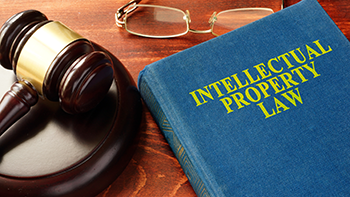 Do you have an amazing idea? Did you come up with a great product idea or other creation? If so, have you thought about legally protecting it?
Do you have an amazing idea? Did you come up with a great product idea or other creation? If so, have you thought about legally protecting it?
If you've ever thought of anything that could create income, you need to protect it. These thoughts and ideas are known as intellectual capital. Some refer to them as intellectual property.
What Is Intellectual Capital?
Intellectual capital is also known as intellectual property or intellectual assets. All of these terms refer to original ideas and thoughts that you make up on your own. [quotesright]If these ideas and thoughts could have economic value, you should protect them via intellectual property rights. [/quotesright]
For example, you may come up with a new kind of couch. You may develop the comfiest couch ever. However, you may not have the resources or the desire to make and sell that couch right now.
If you're interested in further developing that idea later, you need to make sure that you protect this intellectual capital. The idea of this couch is intellectual property that could become economically advantageous down the line.
[quotes]Whether it's new furniture, a new breed of plant, a new electronic device, or something different, you need to protect the idea.[/quotes] It's likely that someone else is going to profit off of the idea if it is a consumer item of some sort. We should also note that you should protect abstract ideas like processes, as these could bring in income as well.
By protecting your intellectual capital, you're ensuring that no one else can profit from the idea that you had without your consent.
However, because intellectual property isn't concrete, protecting it can get muddy. Sometimes, it's hard to determine what kind of protection your intellectual assets need. In fact, some intellectual capital may need more than one kind of protection.
How to Protect Intellectual Property
 There are four ways of protecting your intellectual capital:
There are four ways of protecting your intellectual capital:
- Copyrights
- Trademarks
- Patents
- Trade Secrets
You can use these methods independently or jointly.
For example, you may be looking to start a business. You're going to need patents, trademarks, and more to protect everything that you're about to make. You also need to look for venture capital funding to protect your financial assets.
1. Copyrights
Copyrighting is one of the most popular forms of protecting physical and non-physical property. This kind of protection covers a variety of items and ideas:
- Fiction books
- Nonfiction books
- Paintings
- Drawings
- Sculptures
- Musical scores
- Recordings
- Videos
- Code
- Emails
- Dance
The list goes on and on.
With all of this property, copyright also protects intellectual property related to all of these things.
Copyrighting something prevents others from copying your work without your permission.[quotesright] If someone does end up illegally using your work, you can sue them.[/quotesright]
Copyright protection covers the idea for the lifetime of the creator plus 70 years.
You should copyright your work as soon as you create it. Make sure to place a copyright notice on all copies of the work that exist. You should also register your copyright.
While registration isn't required, it does help if something does go wrong. If someone illegally copies your work, you can easily prove in court that you registered the copyright.
If you're looking to register a copyright, you can go through the United States Patent and Trademark Office (USPTO).
[sidebar]
Should You Hire a Trademark/
Patent Attorney?
Going it alone in filing the documents and detailed information needed to apply is bad enough but you’ll likely find that reading and understanding all the requirements, forms, etc. from the USPTO to be mind numbing, confusing and difficult to deal with.
Worse, you may do a ton of work only to discover you have wasted your time on something that is already protected or discover your idea will never be protected.
We would suggest you search out specialist attorneys who deal with the USPTO on a regular basis. The time, agony, and frustration you’ll save will make your small investment worth it.
Moreover, if your application is rejected you’ll need an expert to help deal with the objections the examiner will raise and respond appropriately.
[/sidebar]
2. Trademarks
Trademarks are a kind of protection that applies to things like words, phrases, pictures, and logos. These are smaller things that individuals may want to protect. Usually, these words and images represent or identify a company or person in some way.
You may also hear some people refer to a trademark as a service mark if the individual is selling services rather than goods. Others also refer to trademarks and service marks as trade names.
[quotes]Trademark protection prevents others from copying your word, phrase, or image.[/quotes] It also prevents people from making similar phrases or images to yours as others may confuse these similar items with yours.
When you apply for a trademark, you have to state the type or class of the business in which you will use the mark. This is because the protection only works within the same type or class of business that you're using it in.
As with copyrights, you do not have to register a trademark. However, doing so can protect you in a court of law.
If you ever have to go to court, you have to prove that you were the first one to use the trademark. You also have to show instances of you and/or your business using the trademark repeatedly. If you're not good with the pressure of conflict, you need to invest in a great lawyer.
To continue with trademark protection, you need to renew the trademark every ten years. You can do this by proving that you're still using whatever word or image you originally trademarked.
If you're looking to trademark something in the United States, you can refer to the United States Patent and Trademark Office.
Trademarks within your specific state do exist. However, this trademark only protects the owner within that state. This means that an individual from another state could still use this trademark without your permission.
3. Patents
Patents cover inventions. You may apply for utility patent protection for a new machine, a new kind of material, a new process, or something similar. You may also want a design patent for a shape that you created or a piece of furniture that you designed.
There are also plant patents for those who breed new varieties of plants.
As you can see, there are plenty of different types of patents. The kind that you want to use will depend on what kind of intellectual capital you are looking to protect.
Just like with trademarks, you can apply for a patent through the United States Patent and Trademark Office. That office will determine what you can and cannot patent.
[quotesright]Patents will protect your intellectual property for twenty years. [/quotesright]
If you find yourself needing to go to court over a patent, you need to make sure that you get the right lawyer. You need to find someone who can help you prove that the other individual made the same or a similar thing that you've legally protected.
4. Trade Secrets
A trade secret is not registered with anybody but you and potentially other trusted members within your company. It is simply a secret that you keep to yourself.
You have to determine whether keeping the secret is more valuable than protecting it.
[quotes]Arguably, a trade secret is the least secure way of protecting intellectual property.[/quotes] Unfortunately, in order to protect a trade secret, you have to reveal the trade secret. That defeats the purpose of having the secret in the first place.
The idea of a trade secret refers to the fact that others cannot easily figure out whatever secret you are keeping. In turn, you'll be able to keep that secret to yourself and benefit economically from it.
If you do file for another kind of protection, you have to disclose the details of the secret that you want to protect. This could go either way: it could be advantageous because you're protecting the idea or it could hurt you because you're disclosing the secret.
Why You Should Protect Intellectual Assets
Your intellectual property is valuable. Even if it isn't making you money now, it may make you money in the future. However, if someone else gets access to your intellectual assets, they could make the money from it.
There has been an ongoing battle in protecting intellectual capital because these thoughts and ideas contribute heavily to economic stability in every country. Without thinkers and inventors, most things wouldn't exist.
Most industries depend on patents, trademarks, and copyrights to protect themselves against individuals or other companies that may decide to copy or duplicate their ideas. Without this protection, there would be no respect for others' ideas and thoughts.
Instead, there would be a race to see who could make an idea come to fruition first.
You should protect your intellectual property because it protects your economic value as an individual and/or a company. You wouldn't want someone else to profit off of your idea. [quotesright]Worst, you wouldn't want them to get away with it if you didn't have some sort of protection over it. [/quotesright]
Learn More
So, when it comes down to it, everyone should be protecting their intellectual capital. If you aren't making money from the idea now, you shouldn't wait for someone else to make money off of the idea later.
Along with intellectual capital, there are so many other things that business professionals need to keep in mind. From legal issues to economic issues, many business leaders are left with questions.
If you have questions about growing or managing your business, you can ask us. We can help answer your questions about running your business, improving your business, and dealing with processes within your business. Want to explore further? Questions? Get in touch and let's set up a time to talk. Brian Tracy USA: 877.433.6225 Email Me










